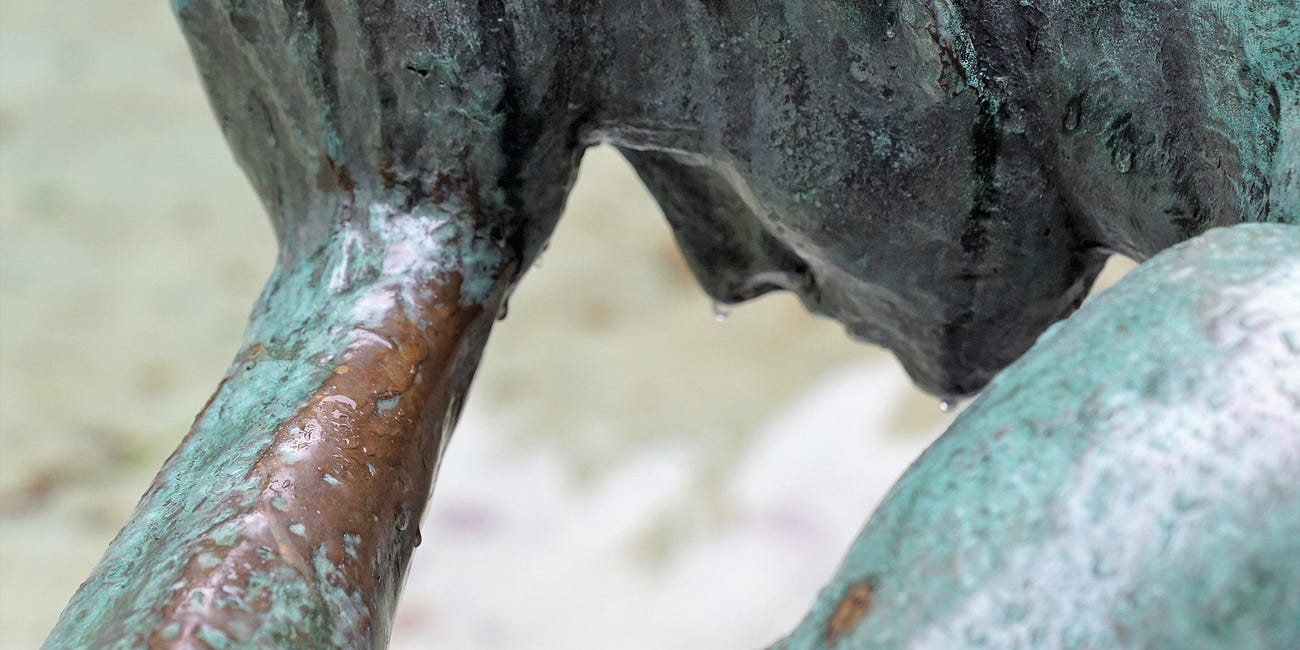Sharing some external wisdom
Sanity by Tanmoy on the prevalence of trauma talk
Early in this ‘stack’s journey, I wrote a piece that I’ve since linked to probably more than any other: the one where I talk about how much everyone is talking about trauma:
The conversation around trauma
The other day, I saw someone speculating on social media about how to reach a person who was interacting in some difficult ways. A commenter suggested looking into the possibility of trauma, “simply because it’s so common.” The comment, made casually, underlined what I consider a tragedy of the modern age. Which is to say: we are living in a traumatized…
The tl;dr here is that trauma talk is not just on the rise but kind of exploding; that nevertheless a lot of people don’t know even the basics of what folks are talking about; that trauma is individual but also familial and cultural; that while the discourse is increasing the treatment for it is lagging behind; and that part of the issue is that we’re living, essentially, in a traumatized culture / world.
It was neat, then, to see one of my favorite thinkers about mental health post this gem the other day, titled “Is the overuse of mental health terms driving us to cultural collapse?”
The title, hyperbolic as it is, refers to a discourse Tanmoy (a marvelous reporter of mental health stories in India) sees resulting from the increased trauma talk I wrote about. Essentially, there’s a lot of pearl-clutching going on about people using “therapy-speak” to excuse bad behavior, encourage selfishness, minimize others’ experiences, and shirk responsibility for our own healing.
This argument, he reminds us, is not new; complaints in the ‘70s about “psychobabble” were rife in the culture, and jokes about therapy and analysis were definitely in the cultural conversation. But it’s definitely accelerated, particularly in the last 10 years or so. “The mental health conversation has swung disturbingly from one ledge to another – from deathly stigma and silence not so long ago... to a pop-culture orgy where therapy-speak like 'boundary', 'triggering', 'attachment style', and 'toxic' flows vulgarly off our tongues.” This has made some people angry, he notes, and he used to be one of them.
Now, though, he has a more nuanced view, and it’s neat to watch him lay it out. You need to subscribe to see the full article, but you can subscribe for free.
The main takeaway I had from it was essentially this, which I think we’d do well to apply to a lot of cultural discussions that have suddenly been blown wide open:
After decades, even centuries of being forcibly shut, the mental-health conversation tap has just been turned on. We have to expect some dirty water to gush out first before a clear stream emerges.
Here’s to working toward clearer waters.



I asked my four-year old daughter how her day at preschool went and she gave a huge sigh and said "Ugh! Colin!' I asked what Colin did to annoy her and she said, and I quote "He just doesn't have good tools for managing his anger!"
That fluency with psychological language has continued and expanded and I watch how she uses it to navigate relationships and build strong, kind friendships. There are a lot of things that she knows (e.g. Circle Theory, "I learned that when I was nine, when Grandma was dying") that I only learned much later in life. I often think that I have no idea what an adult who grew up with these concepts looks like, but I can't wait to find out!